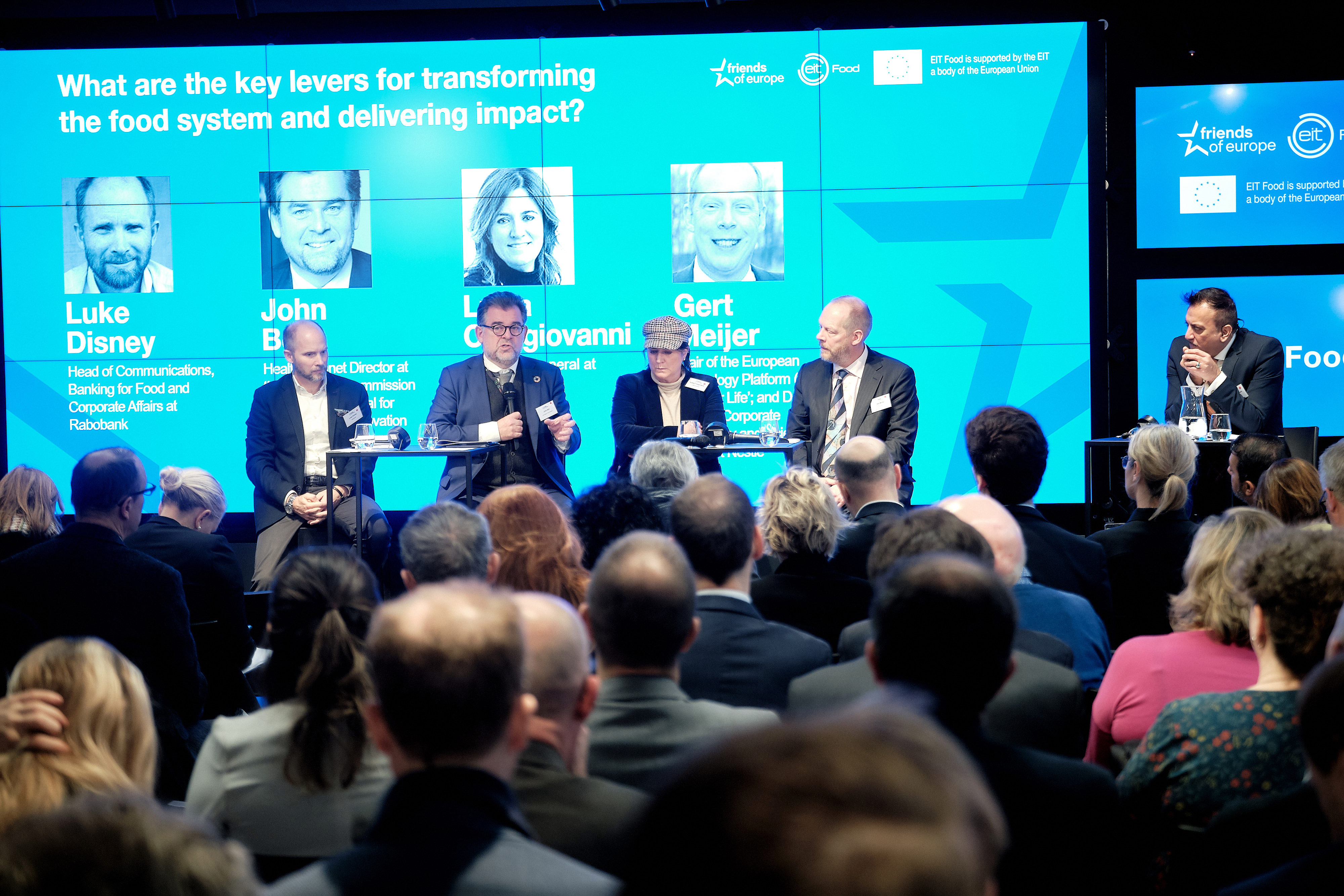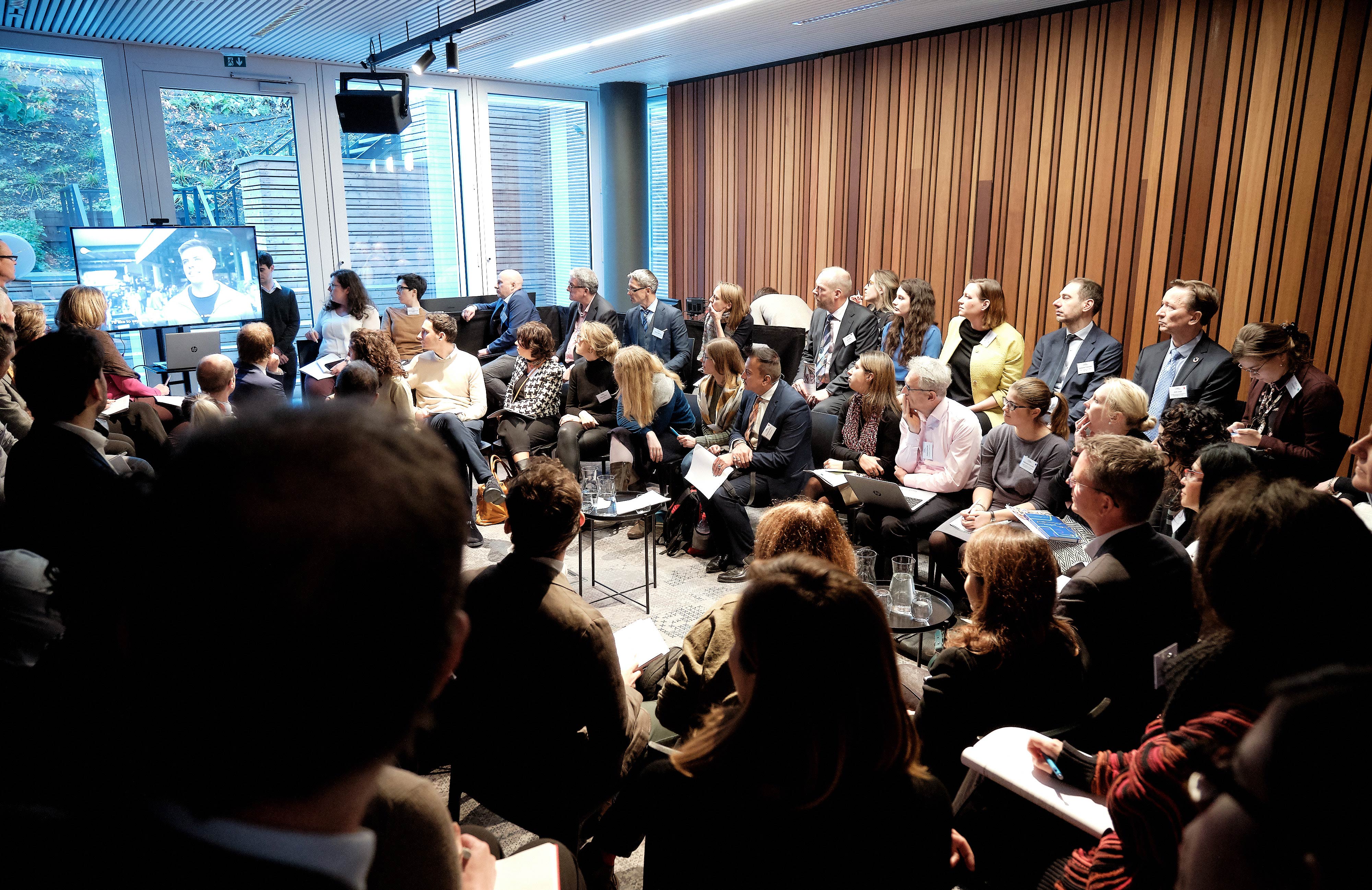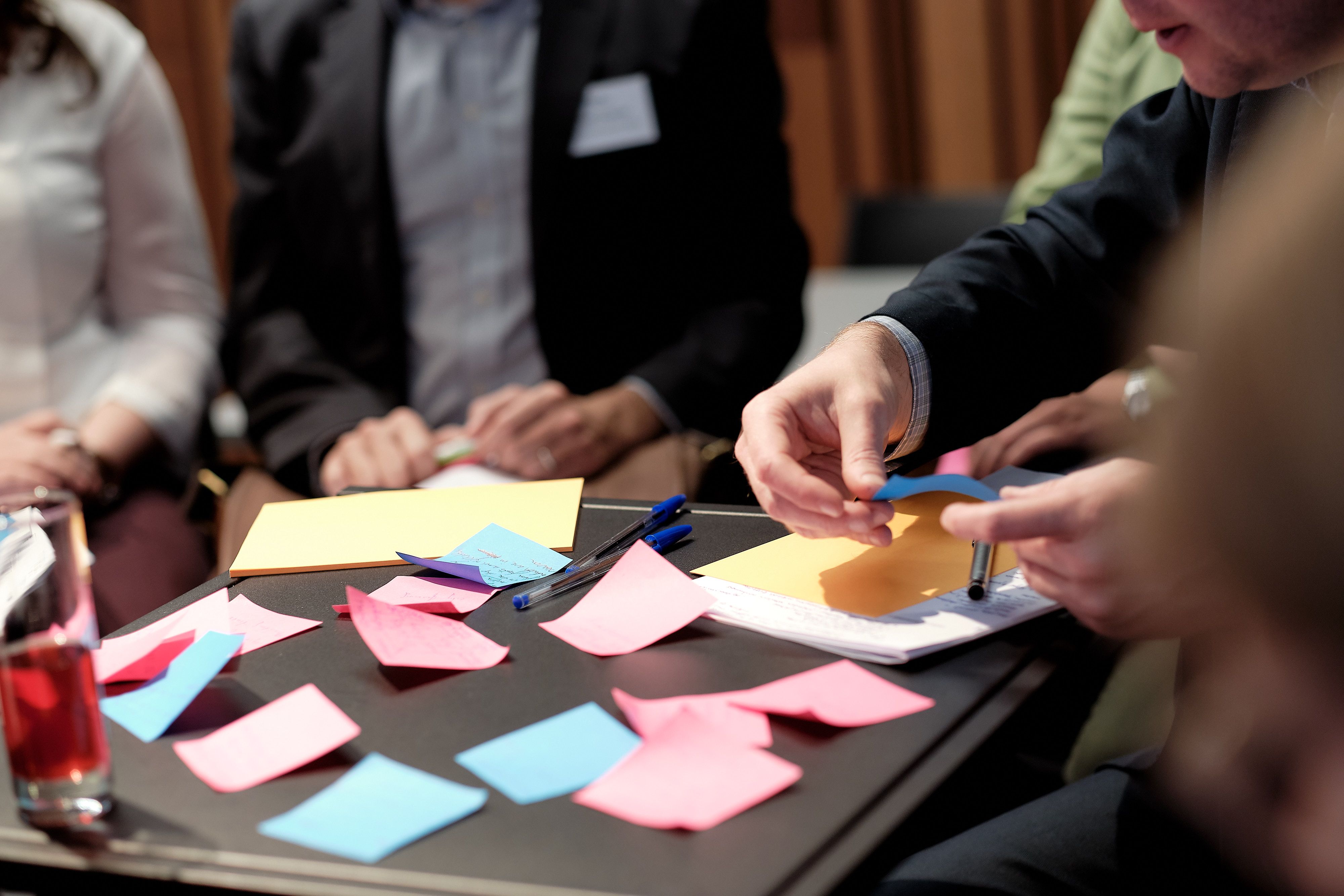The Future of Food is now
On 20 November 2019, EIT Food hosted its first EU conference in Brussels, bringing together policymakers and food innovation experts to brainstorm the future of food. The event was organised in partnership with Brussels-based think tank Friends of Europe.

We spoke to Giovanni Colombo, EIT Food’s Senior Public Affairs Manager, to find out more about the event and the highlights from the day.
Why did EIT Food organise this event, and why now?
We are at a very important stage in Brussels, for two reasons. The first one is that a new Commission is about to take office, and it has pledged to come up with a new plan called the ‘Green Deal’ for Europe. The aim of this is to set the European Union society and economy on a more sustainable path, particularly in relation to climate change. As part of this Green Deal there will be a new policy on sustainable food from farm to fork.
The other reason why this is very important is that the Commission and the EU member states are currently working on the definition of the future EU programme for research and innovation, which is called ‘Horizon Europe’. This will replace Horizon 2020 and define the research innovation priorities for the seven years from 2021 to 2027. Importantly, this plan is being finalised and discussed right now.
So, the idea was for EIT Food to host a conversation to gather different stakeholders together, to contribute to these two important policy initiatives. We wanted to start a conversation on how we can collectively transform the food system. We wanted to create an opportunity for broader collaboration, involving also other important stakeholders outside our usual network, to discuss how we can achieve this transformation.
Who participated in the event?
Our aim was to connect all the players from farm to fork, so we invited changemakers from across the food value chain to come together for the event. This included our community of EIT Food partners - so corporates, research centres, startups, and universities - policymakers and officials from the European Commission, as well as experts from organisations such as the FAO (Food and Agriculture Organization of the UN) and the International Panel on Climate Change (IPCC). We also invited representatives of farming organisations, industry associations and consumer groups to ensure all voices were heard.
How did you structure this conversation?
To open and set the scene for the conference, we had a presentation by the FAO describing the big challenges currently facing the food system, particularly in relation to nutrition and diets. This was followed by a panel debate discussing the issue of how research and innovation initiatives such as EIT Food can address these challenges and deliver impact. The panel included John Bell (Healthy Planet Director at the European Commission’s DG Research), Luisa Crisigiovanni (Secretary General of Altroconsumo), Luke Disney (Head of Communications, Banking for Food and Corporate Affairs at Rabobank), and Gert Meijer (Chair of the European Technology Platform ‘Food for Life’ and Deputy Head of Corporate Regulatory and Scientific Affairs at Nestlé).
In the afternoon we had important input from Koko Warner, the lead author of the recent IPCC report about climate change and land use.

One very important message that resonated a lot, was that time is running short. John Bell gave the discussion a real sense of urgency with his comment, “We have 10 crops left before it’s too late”, stressing that the window of opportunity to do something is now.
Following the plenary session, we split the group into three parallel workshops, focussing on one topic to discuss the challenges and opportunities. In each of these we had a member of the RisingFoodStars (the association of startups supported by EIT Food) presenting what they are doing in that specific field, which helped the group to look at topics through the eyes of the innovators who are currently bringing new solutions to the market.
Afterwards we reported the outcomes of these workshops back to the plenary, and then in the afternoon we split the audience again into 12 smaller discussion groups. The job of these smaller groups was to come up with recommendations for the EU based on the earlier discussions.
What topics did you explore within the morning workshops?
The first topic was consumer participation in the transformation of the food system, the second was protein production and consumption, and the third was related to the digitalisation of the food system.
How did you communicate consumer opinions during the event?
It was important for us to capture consumer views on the future of food, because any changes made to the food system will ultimately affect consumers and EIT Food wants to include them in the food innovation process. To stress the importance of consumer participation, we interviewed consumers around Europe before the event, asking them the same questions we were going to debate in the conference. We presented these as short Vox Pops during the morning workshops, in order to encourage people to think of the consumer perspective - what do they need, how are we helping them to participate in the transformation and what kind of solutions are we giving them to contribute to the change. In order to make a difference, consumers need options, affordable and accessible. They need information and they need a chance to participate in projects where they can co-design the future of food with us. This is something which is starting to happen in the sector, but we would like to see it happen more.

Was there a difference between the perspectives of consumers across Europe to the stakeholders who attended the event?
Consumers have different priorities and perspectives to farmers, policymakers and other stakeholders within the food value chain, and that is probably one of the challenges we face. So, as a consumer the conversation is about what’s important in our daily life, but in conversations with other stakeholders working within the food value chain, everything becomes much more complex and nuanced. There is clearly a gap between the two, and we need to try to bridge and fill it with meaningful dialogue and collaboration. Farmers too have their perspective and have a number of legitimate concerns which shall be taken into account. But how do we connect these diverse groups to change the food system and create win-wins?
Only dialogue and collaboration can make a difference. This really fits with our motto “improving food together”. I think that “togetherness” is the challenge now, and if we can get an event like this right, it’s a step in the right direction.
What themes emerged from the workshop discussions?
- Different stakeholder groups don’t necessarily share the same language, references and perceptions. So, in order to have more meaningful conversations, we need to do more to bring them together on the same level. Even sharing the same language about certain topics would be a major achievement.
- There will be choices to be made when we transition from the food system of today to the food system of tomorrow. Not only will this be based on science, it will also be based on values and culture. We need to be sure we have a common vision to enable us to have this conversation. Politics will also play an important role in shaping this vision.
- The importance of ethics and fairness in the transition - how do we make sure we have a ‘just’ and inclusive transition, and how can we come up with a system to monitor the fairness of the food system in a way that makes it more transparent and accountable while also capturing its richness and complexity?
- The digitalisation of the food system is a major trend, which presents both risks and opportunities. When it comes to data, we need policies to manage ownership, transparency and access to data, and this will be very important to ensure the sustainability and fairness of the food system.
Where does EIT Food stand on the themes discussed in the workshops?
My feeling is that a lot of the things we discussed resonate very closely with what EIT Food is already working on. We take a consumer-centric approach, but we work with all players active in the food system. As well as working on innovation, we also work on education, communication and entrepreneurship. This holistic approach ensures we can foster opportunities for dialogue and collaboration which can have a real impact. It’s really positive to see that we are on the right track!
How will these outcomes be communicated with the EU?
We are going to blend all of the insights from the day together into one report which will be disseminated to EU policymakers and stakeholders, beyond the circle of those working on research and innovation. The reason for this is that increasingly in Brussels there is the recognition that research and innovation are complementary to other policies and measures, and you can be much more effective if you use all the tools at your disposal to pursue your goal. Interestingly, one of the speakers in the morning session bought up the idea of research and innovation programmes such as Horizon Europe not acting just as an “ATM machine” to dispense cash, but as a “GPS” to help us understand which is the direction to follow to transform our society and our economy.

What were the highlights of the day for you?
Personally, I really enjoyed the plenary panel debate - there were very diverse perspectives and it was very interesting to see how the different pieces of the system (policy, investment, research and consumers) were discussed together. I also enjoyed the afternoon discussion groups, where we had passionate co-creation between all stakeholders.
So, what is the Future of Food, and what role does the EIT Food community play in it?
Whether we like it or not, food will change. The question is how, and whether we can manage that change to steer it in the direction that we want. These kind of conferences and discussions show all the potential, but also all the limits in our ability to agree on how to manage this transition and strike the necessary compromises. I think the goal for us is to understand each other and use that to agree on what kind of future we want to build for our food system. Otherwise the system will change in a much more uncoordinated, unpredictable and uncontrolled fashion with potential negative consequences.
We need to agree how we are going to shape the future together.
Giovanni Colombo is EIT Food’s Senior Public Affairs Manager. His work focuses on managing relations with the EU institutions, to build collaboration and synergies with other EU programmes. Prior to joining EIT Food, he worked as food practice lead in one of the largest EU affairs consultancies in Brussels, Hill+Knowlton Strategies, helping multinational corporations and industry associations engaging with policymakers and building a profile at EU level.
About the author: Dr Lucy Wallace is a freelance writer with a background in research communications and an interest in novel engagement methods with diverse audiences.